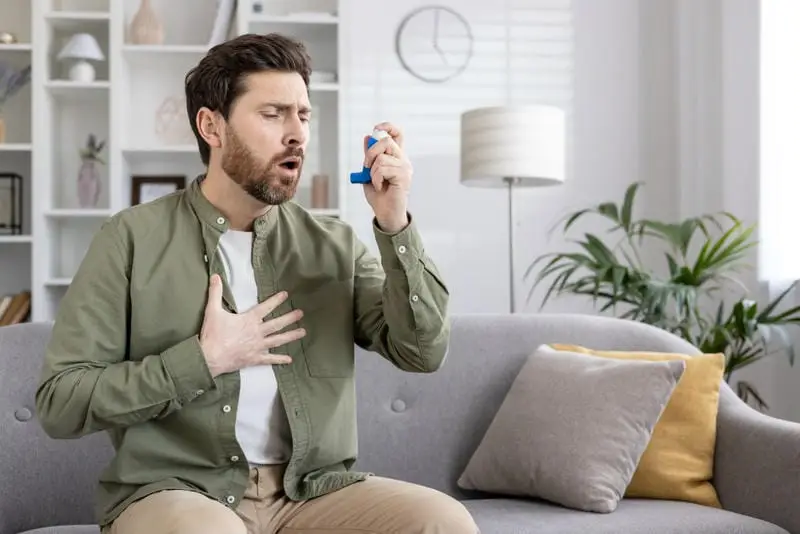- Published on: Oct 10, 2025
- 2 minute read
- By: Secondmedic Expert
Mental Health Issues In Indian Elderly: A Growing Concern Often Overlooked
India’s senior population is growing faster than ever before. By 2050, one in five Indians will be above 60 years of age - a remarkable demographic shift. But behind this silver lining lies a silent crisis: mental health among India’s elderly.
The Hidden Struggle Behind Aging
Old age brings wisdom, but also biological and emotional challenges. Retirement, loss of loved ones, financial dependency, or health decline can trigger mental distress. Yet, these issues often go unnoticed because families mistake them for “normal signs of aging.”
According to the National Mental Health Survey by NIMHANS, nearly 20% of India’s elderly experience mental health issues, especially depression and anxiety. In rural areas, the situation is worse due to lack of awareness and healthcare access.
Common Mental Health Problems in Indian Seniors
-
Depression - Often triggered by loneliness, bereavement, or chronic illnesses. Signs include low mood, hopelessness, loss of interest, or changes in appetite and sleep.
-
Dementia - A progressive decline in memory and cognition, often misinterpreted as forgetfulness. India has over 5 million dementia patients, projected to double by 2050.
-
Anxiety & Sleep Disorders - Worries about health, finances, or safety cause insomnia, irritability, or constant tension.
-
Substance Use - Some elderly turn to alcohol or sedatives to cope, worsening mental health.
-
Psychosomatic Disorders - Emotional pain often manifests physically - headaches, fatigue, or chronic pain without clear medical cause.
Cultural & Social Roots of the Crisis
India’s traditional joint family system once offered emotional security. But with urbanization and migration, many elders now live alone or in old-age homes. The HelpAge India (2024) survey found that 47% of elderly Indians feel neglected by their families, and 36% experience loneliness regularly.
Moreover, stigma remains strong - elders hesitate to discuss “mental illness” for fear of being labeled weak or burdensome.
Health System Challenges
Despite national programs like NPHCE, access to geriatric psychiatry or counseling is still limited. Less than 10% of primary healthcare centers have a trained mental health professional.
However, initiatives like Tele-MANAS (2023) - India’s national mental health helpline (14416) - are bridging the gap by providing free counseling and referral support through phone and telemedicine.
Steps Toward Better Elderly Mental Health
-
Regular Screening: Routine depression and cognitive checks during health visits.
-
Community Programs: Local NGOs, senior clubs, and faith groups can provide social support.
-
Family Awareness: Encourage open dialogue, empathy, and daily engagement.
-
Physical Activity: Even gentle yoga or morning walks improve mood and sleep.
-
Digital Inclusion: Teach seniors to use smartphones for connecting with family or online therapy platforms.
The Role of Platforms Like SecondMedic
SecondMedic integrates mental wellness and teleconsultation for senior citizens - offering easy video counseling, medication delivery, and home diagnostics. Elderly patients can book sessions without traveling long distances or waiting in clinics, ensuring comfort and privacy.
Conclusion
Mental health in India’s elderly isn’t just a medical issue - it’s a social one. Aging should bring peace, not isolation. Recognizing emotional distress, breaking stigma, and encouraging conversation can transform how we care for our elders.
A healthy heart and body mean little without a healthy mind. Let’s make sure our elders live with dignity, purpose, and connection.
Help your loved ones find care from the comfort of home - Book an online mental wellness consultation on SecondMedic today ? https://www.secondmedic.com
Real Data, Surveys & Links
-
National Mental Health Survey (NIMHANS, 2023): 15–20% elderly with mental disorders.
nimhans.ac.in -
HelpAge India Report 2024: 47% of elders feel neglected by families.
helpageindia.org -
National Programme for Health Care of the Elderly (NPHCE): Govt. initiative for senior health.
nhp.gov.in -
Tele-MANAS Helpline (MoHFW, 2023): 14416 - free national mental health line.
mohfw.gov.in
Dementia India Report (AIIMS & ARDSI, 2024): 5.3 million affected, projected to double by 2050.
ardsi.org
Read FAQs
A. The most common are depression, dementia, anxiety, sleep disorders, and late-life grief due to loss of social connection or partner.
A. Because symptoms like fatigue or forgetfulness are mistaken for normal aging. Stigma and lack of screening worsen underdiagnosis.
A. According to the National Mental Health Survey (NIMHANS), around 15–20% of Indians aged 60+ suffer from mental disorders, but less than 10% receive treatment.
A. Regular social interaction, emotional reassurance, involvement in daily decisions, and encouraging physical activity or counseling can help greatly.
A. Yes - programs like National Programme for Health Care of the Elderly (NPHCE) and Tele-MANAS helpline offer free or subsidized mental health support.









